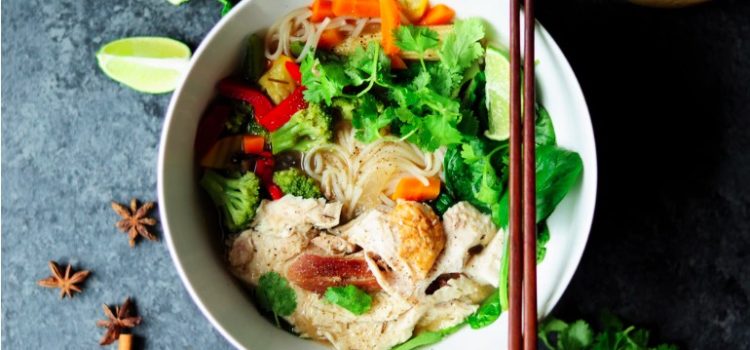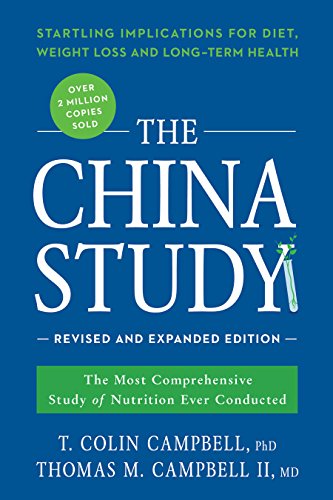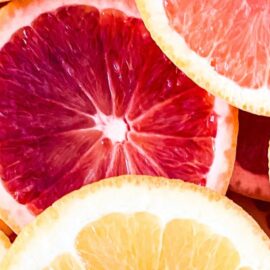

This article is an excerpt from the Shortform summary of "The China Study" by Colin Campbell. Shortform has the world's best summaries of books you should be reading.
Like this article? Sign up for a free trial here .
What makes the traditional Chinese diet so healthy? What elements of the Chinese diet can you adopt to make your own eating habits healthier?
Learn why the traditional Chinese diet is one of the healthiest in the world, and how you can use it as a template for your own healthy eating.
Breaking Down the Chinese Diet
During the well-known China Study, researchers analyzed the Chinese diet and learned several lessons that informed the way they viewed America’s various health problems.
The Secret of the Chinese Diet
The Chinese eat far more plants and far fewer animal products than Americans.
One goal of the China Study was to compare the Chinese with other Chinese, determining why some were at a higher risk for certain diseases than others. Another goal of the study was to compare the Chinese with Americans. They hoped to clarify the link between diet and diseases of affluence, possibly explaining why Americans die of these diseases at a much higher rate than Chinese living in rural areas.
As expected, they found major differences when comparing the typical Chinese and American diets:
| Nutrient | Chinese Intake | American Intake |
| Protein (% of calories) | 9-10 | 15-16 |
| Animal Protein (% of total protein) | 10 | > 81 |
| Fat (% of calories) | 14.5 | 34-38 |
| Fiber (grams/day) | 33 | 12 |
| Iron (milligrams/day) | 34 | 18 |
| Calories (kcal/day) | 2,641 | 1,989 |
In summary, the rural Chinese ate less animal protein, less protein overall, and less fat than Americans. They consumed much more fiber and iron. The Chinese also consumed more calories than Americans, but as we’ll see, their disease risk and weight were still lower. Why does the Chinese diet contain dramatically less animal protein and fat? Because they eat far more plant-based foods.
Animal-Based Versus Plant-Based Diets
Because of dramatic differences in the eating habits of the two countries, the China Study was able to compare an essentially plant-based diet with an animal-based diet.
This kind of study is rare. Most Western studies, even those purporting to look at the effects of animal-based foods on diseases, compare diets containing a lot of animal foods with diets containing even more animal foods. Our idea of what a diet “low” in animal foods looks like still allows for a lot of animal protein, compared with the low consumption of meat and dairy in other countries.
What Was the China Study?
Analyzing the typical Chinese diet was just one way researchers, led by Dr. T. Colin Campbell, compared the health risks impacting the Chinese. The China Study was the most comprehensive survey of its kind.
In collaboration with the Chinese Academy of Preventive Medicine and the University of Oxford, Campbell’s team traveled to 65 rural and semi-rural Chinese counties, collecting blood and administering questionnaires to 6,500 adults.
Once for every subject over the course of a year, researchers obtained urine samples, measured what families ate over a three-day period, visited marketplaces to analyze food samples, and accumulated data on 367 variables.
They examined 48 different diseases and found more than 8,000 statistically significant associations among disease variables, diet, and lifestyle. They found that the Chinese diet contributed to their overall low disease rates.
Why China?
Studying people in rural China allowed researchers to rule out genetics as a major factor in disease formation because, compared to other areas of the world, rural China contains populations with homogeneous genes. 87% of the Chinese are of the same ethnic group, the Han.
Additionally, 90-94% of the adults studied were living in the county where they were born. The lack of migration meant that the genes in the population were relatively similar.
Even though the Chinese share the majority of their genes, they don’t all have the same cancer risk. For example, some Chinese counties have much higher cancer rates than others, and some types of cancers are much more prevalent in some places.
Genes make up only 2-3% of a person’s total cancer risk. Therefore, the other 97-98% must be environmental or related to lifestyle. The fact that the Chinese share most of their genes but get different cancers supports this statistic.
Researchers discovered that diet has the biggest impact on cancer risk and that populations that ate a typical Chinese diet had the lowest disease rates.
To adopt elements of the Chinese diet to lower your own disease risk, consider eating more plant foods and fewer animal foods.
The Eight Principles of The China Study Diet
Principle #1: Various nutrients work together to achieve health.
No single nutrient is responsible, on its own, for good health. The way food chemicals function in the body and the way they interact with each other are too complex to ever fully understand. The sum of all these chemicals working together is greater than the actions of each individual chemical.
This is why the “whole foods” part of the whole foods, plant-based Chinese diet is important. How nutrients are packaged together in food matters more than the specific nutrients themselves. This brings us to Principle #2.
Principle #2: Avoid supplements—get your nutrients from food, not pills.
Supplements are problematic for a variety of reasons. First of all, the whole concept of a supplement ignores Principle #1—it’s the whole food, not a particular nutrient, that provides the most benefit.
Additionally, supplements are poorly regulated, so you don’t really know what you’re getting when you buy them. They may have unforeseen side effects and some can cause harm. For example, many researchers caution against taking beta-carotene supplements because they’ve been shown to increase lung cancer risk.
———End of Preview———

Like what you just read? Read the rest of the world's best summary of "The China Study" at Shortform . Learn the book's critical concepts in 20 minutes or less .
Here's what you'll find in our full The China Study summary :
- Why animal proteins (meat, milk) might cause cancer, diabetes, and other diseases
- Why the medical institution is structured to hide the truth about disease and food
- The precise diet you'll need to eat to live longer and feel happier






